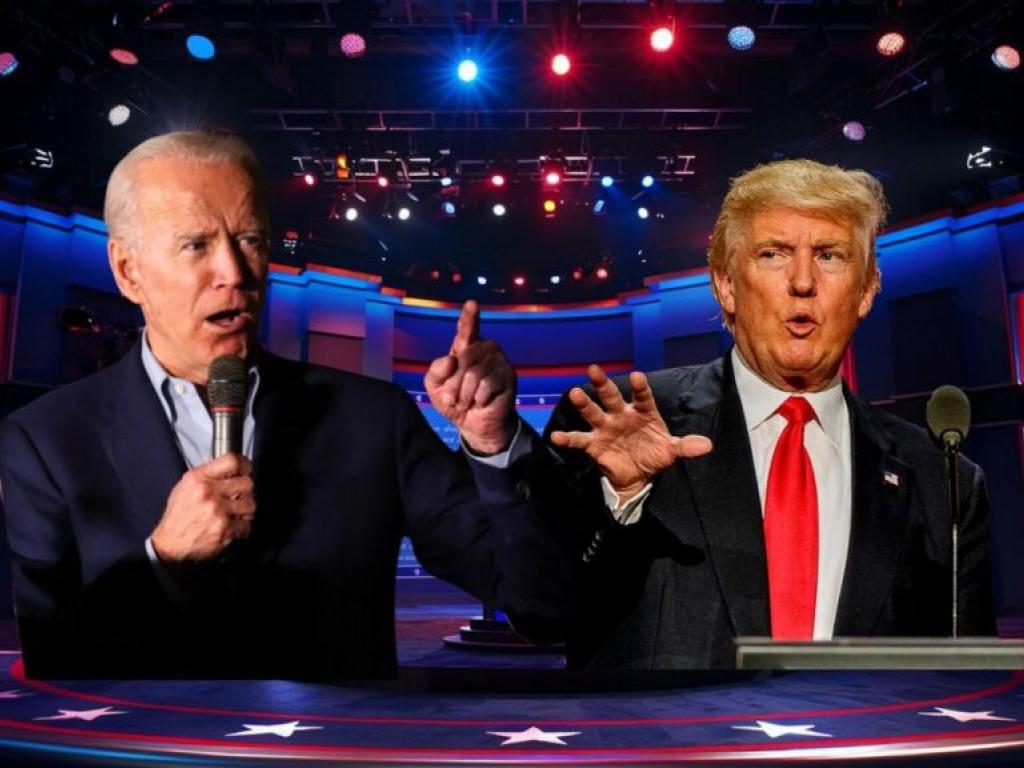US Economy At Stake In Biden Vs. Trump Debate: 'Both Candidates Have Policies That Are Inflationary'
Author: Piero Cingari | June 27, 2024 04:55pm
All eyes are on the highly anticipated Thursday debate between President Joe Biden and former President Donald Trump, scheduled for Thursday at 9 p.m. ET.
This debate takes place over four months before the November election, marking the earliest presidential debate since 1960.
“The focus will most definitely be on the economy first, and then foreign policy,” economist Ayesha Tariq, founder of MacroVisor, said in a blogpost.
K-Shaped Recovery And Higher Spending
Tariq asserted that both candidates are historically unpopular, with the American public weary of high prices and interest rates.
“The American economy has experienced a K-shaped recovery,” she explained, “where the top quartile of income earners have fared well, but the bottom 50% have struggled. However, elections count everyone's vote.”
The new televised format, moderated by CNN, is expected to address public health concerns and allow for uninterrupted candidate statements. Tariq believes this could provide clearer insights into each candidate’s policies.
Tariq highlighted that Trump's presidency saw lower inflation, interest rates, and taxes, which could appeal to voters nostalgic for those economic conditions. Conversely, Biden is likely to emphasize his administration’s low unemployment rates, stimulus measures, and efforts to reshore manufacturing jobs through infrastructure spending policies.
Despite differing approaches, the results on spending and inflation would not be too dissimilar, according to the economist.
“Both candidates have policies that are inflationary and call for an increase in fiscal spending,” Tariq stated.
Biden supports higher personal taxes for high-income earners and existing tariffs with select protectionist measures, while Trump prefers maintaining previous tax cuts and imposing a 10% global tariff and a 60% China tariff.
On illegal immigration, Biden focuses on legislative crackdowns, whereas Trump takes a stricter stance with direct deportation.
In energy policy, Biden promotes clean energy and Inflation Reduction Act (IRA) spending, whereas Trump advocates for increased fossil fuel production to reduce inflation.
Tariq explained that the election’s outcome, whether a unified or divided government, will significantly impact policy implementation. A unified government is expected to result in greater fiscal spending.
Potential Market Reactions
Long-term Treasury yields are key indicators to monitors for market watchers after the debate, according to Tariq.
“A poorly received debate could lead to a spike in yields due to concerns about inflation and economic slowdown. However, Friday's PCE data might counteract this trend,” Tariq wrote.
The yield on the 30-year Treasury Note closed the session at 4.43%, down 3 basis points on Thursday.
The economist expects volatility to increase post-election from a significantly low level, indicating some market anxiety about future policies.
On Thursday, the CBOE Volatility Index, or VIX, closed at the 12.21 level, marking its third straight session of declines. The market fear gauge continued to hold near the lowest levels since January 2020.
The S&P 500, as tracked by the SPDR S&P 500 ETF Trust (NYSE:SPY), recorded a third consecutive green session, closing at less than 1 percentage point below its all-time high.
Read Next:
Photo created with images from Oscar Ivan Lopez and mark reinstein/Shutterstock.com and artificial intelligence via Midjourney.
Posted In: SPY





